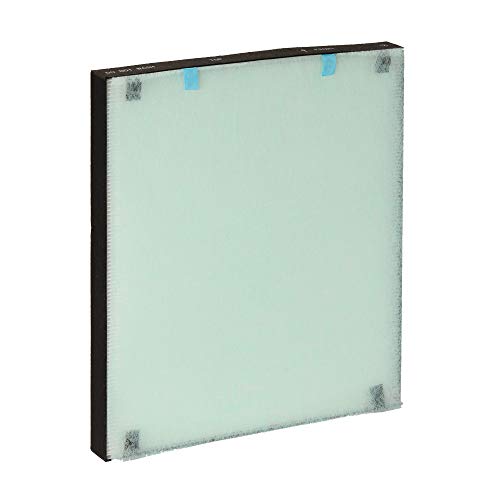Maintaining a healthy indoor environment often requires using an air purifier. But, if your air purifier uses a HEPA filter, you might wonder how long it will last? Also, can you wash and reuse your HEPA filter? We did some research to answer your questions and put your mind at ease.
Most reputable purifiers use a true HEPA filter or HEPA filter. Most HEPA filters last 12 months before needing replacement under normal circumstances. However, improper installation or filtering of a larger, heavily contaminated space may shorten the average lifespan.
Air purifiers are a great device that helps remove contaminants like dust, mold, pollen, and allergens from the air. However, you may have questions about different HEPA filter brands or how to tell when your HEPA filter is dirty and needs changing. Continue reading as we cover frequently asked questions and look at different HEPA filters.
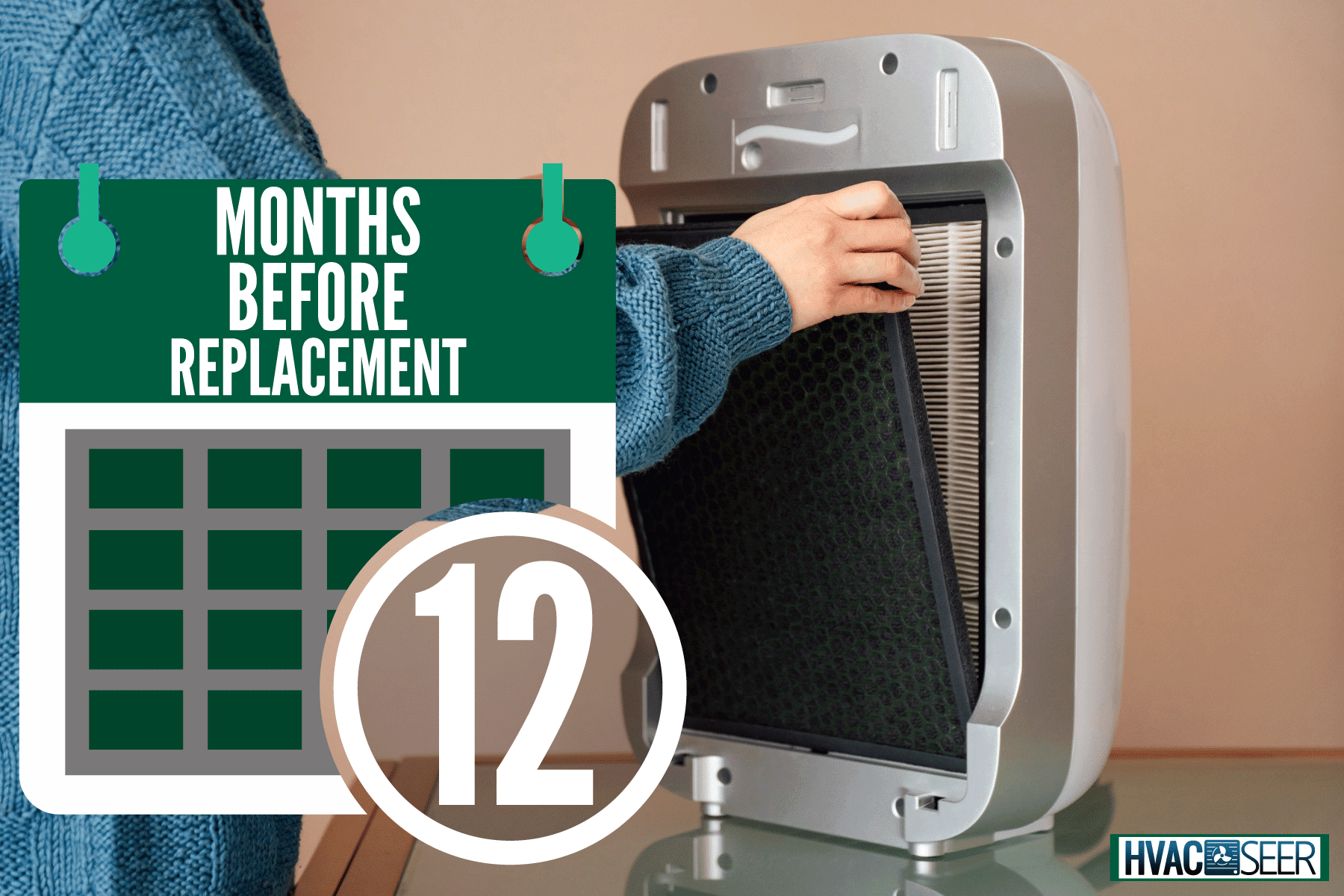
Longevity of Different Brands of HEPA Filters
On average, most HEPA filters will last between 6 to 12 months before they need to be replaced. However, heavy usage and the number of contaminants the filter removes can impact its longevity. If a HEPA filter is left unused, it may still be viable for many years.
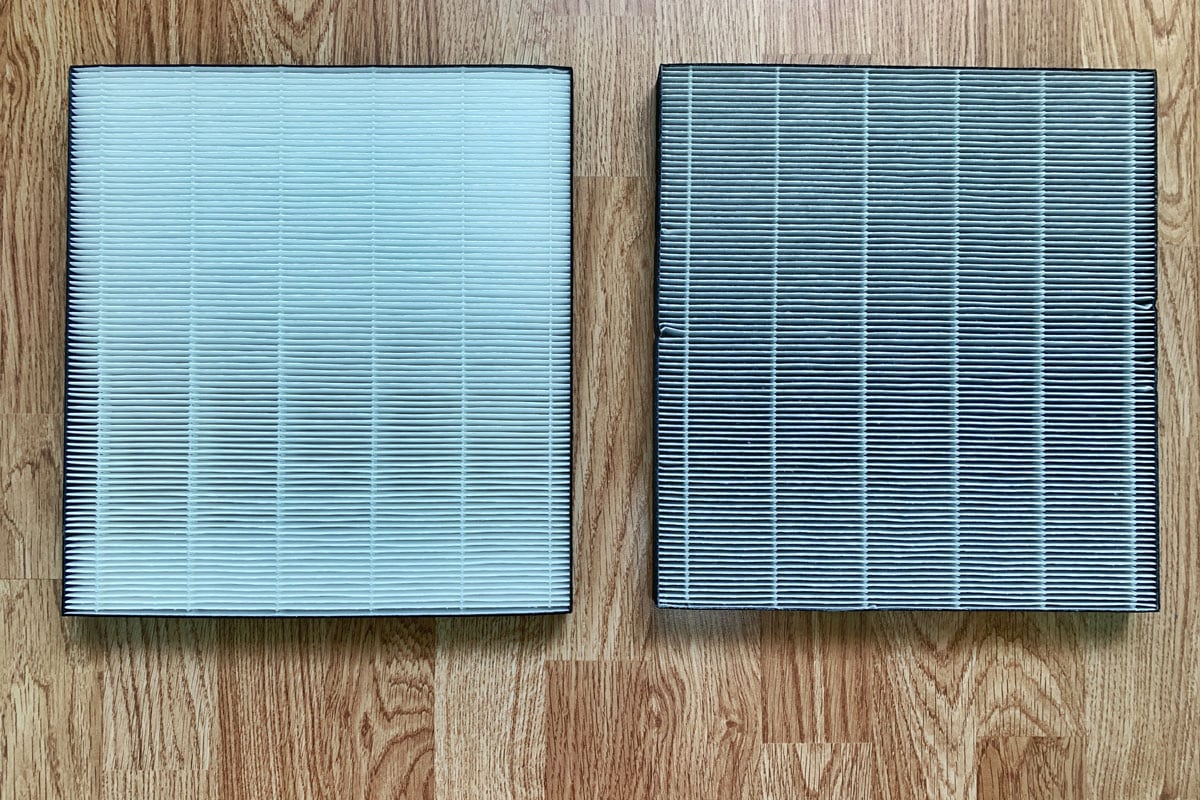
Other filters used in an air purifier may need replacement after 3 months or require cleaning every 2 to 4 weeks. To gauge the lifespan of a HEPA filter and whether it can go beyond recommended limits depends on the air quality and hours of run time.
Other factors will motivate you to change your filters more often or earlier than 6 months to a year. They include the following points of interest.
- There are pets or small children in the home
- Heavier amounts of allergens and contaminants in the air than usual are present
- A resident of the home has asthma or other severe respiratory problems
- The size of your residence
- How often you use your HVAC system, and its cleanliness and performance
Not to worry, as we will focus mostly on different brands of HEPA filters and related questions. Let's review the following list of top brands below.
1. Aera Max
Aera Max offers two genuine HEPA filters for its air purifiers. And the filters last an average of 1 year before they need replacing. As a bonus, the filters include an antibacterial treatment to prevent the growth of fungi, mold, and odors.
Check out the following filter on Amazon.
2. AllerAir
AllerAir boasts a HEPA and Super HEPA filter that last up to 2 years before they need replacing. Their devices also use a carbon filter and pre-filter.
Check out this AllerAir HEPA filter on Amazon.
3. BISSEL
BISSEL informs its consumers to replace their HEPA brand every 6 months compared to other brands. The recommendation is to ensure the top performance of its air purifier.
Check out this filter on Amazon.
4. Blueair
Blueair may not exactly use true HEPA filter technology. Instead, it relies on HEPA filtration using ionization along with filters to clean the air. Also, Blueair suggests changing their filters every 6 months.
5. Coway
Coway offers an Airmega HEPA filter that should last up to 12 months under normal operation. The manufacturer advertises that it uses true HEPA filter technology with carbon filtration.
Check out this filter on Amazon.
6. Dyson
The company Dyson recommends changing its HEPA filter every 12 months. Their filters are engineered by the same people who make their machines.
Check out this replacement filter on Amazon.
7. GermGuardian
The manufacturers of GermGuardian suggest replacing their filters every 6 to 8 months. However, the carbon filter can be vacuumed for maintenance.
Check out this replacement filter on Amazon.
8. Honeywell
According to Honeywell, some of its HEPA Clean filters should be replaced after 4 to 6 months. But its other HEPA filters should be replaced after 1 year.
Check out this replacement HEPA filter on Amazon.
9. IQAir Hyper HEPA filter
With a lengthy lifespan compared to competitors, IQAir HEPA filters only need to be replaced every 4 years. A LED light conveniently signals the life and quality of the filter.
Check out this medical-grade filter on Amazon.
10. Levoit
Levoit requires that its HEPA filters get replaced within 6 to 12 months. The manufacturer offers a wide range of air purifiers.
Check out this filter for Levoit on Amazon.
11. Medify Air
Medify Air boasts high-quality air filtration, using genuine HEPA filters that need to be changed after 3 to 4 months or 2,500 hours of use. It captures particulates as small as 0.1 microns in size.
Check out this high-quality filter on Amazon.
12. Molekule
Molekule is a well-known brand that uses a PECO filter rather than a HEPA filter. The product needs replacing every 6 months for effective cleaning.
Check out this unique filter on Amazon.
13. Rabbit Air
The manufacturer recommends changing the filters every 18 months for anyone with a Rabbit Air purifier. The products capture a multitude of contaminants from indoor air.
Check out this replacement filter on Amazon.
14. Whirlpool
Whirlpool is a brand that many trust and recognize for various products. Their HEPA filters for air purifiers need to be replaced every 12 months.
Check out this filter on Amazon.
15. Winix
If you are the owner of a Winix air purifier, you'll want to replace your HEPA filter every 12 months. Other filters may need changing every 3 months or cleaned regularly.
Check out this filter replacement on Amazon.
Frequently Asked Questions
What Is The Difference Between HEPA Filters and True HEPA Filters?
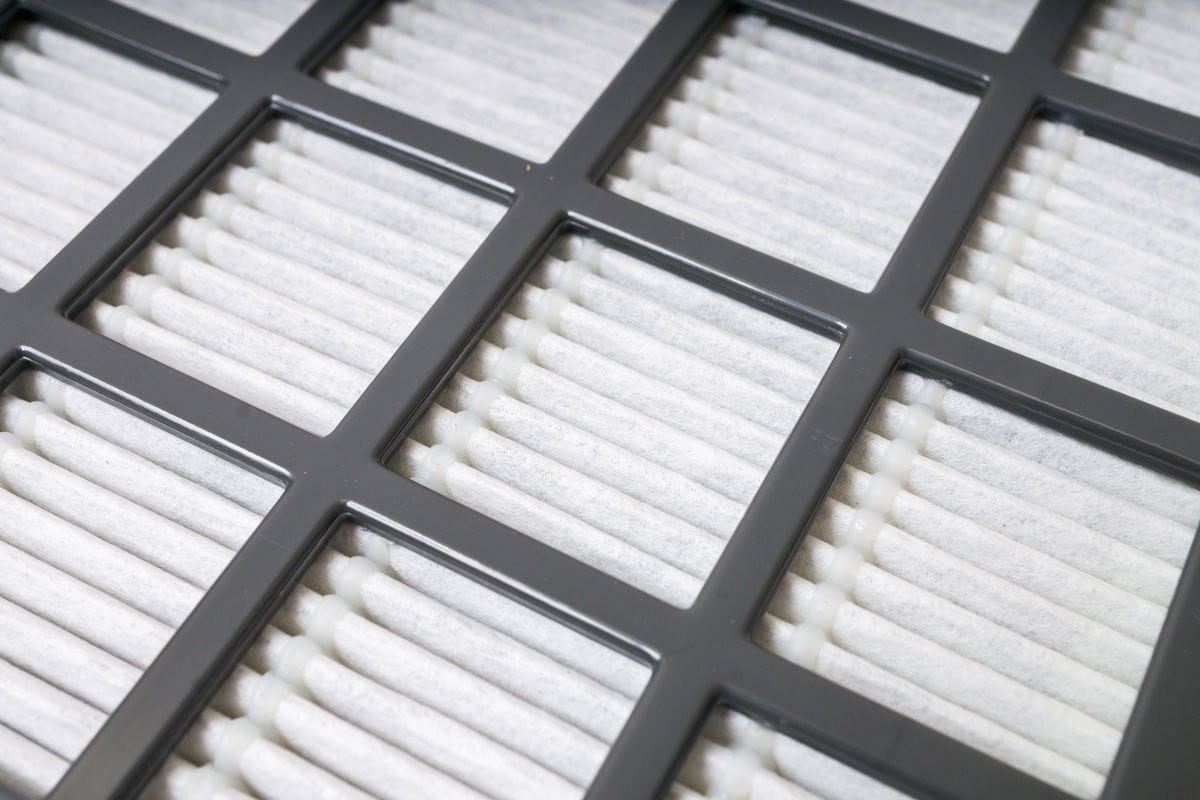
All filters are not created equal. So, if you are investing in a quality air purifier to improve indoor air quality, it pays to know the difference between HEPA and True HEPA filters.
It all comes down to whether a HEPA filter meets the Department of Energy's standards. For a HEPA filter to be true, it must be able to trap a minimum of 99.7% particulates at 0.3 microns in diameter.
We may deem filters HEPA because they remove a high amount of indoor pollutants. But, if a HEPA filter doesn't meet the DOE's standards, it is not 'true.' Be aware that the criteria for HEPA filters differ between countries and manufacturers of air purifiers.
Can You Wash And Reuse HEPA Filters?
You can get away with washing and reusing a HEPA filter for some models. However, most experts recommend against washing, vacuuming, and reusing a HEPA filter.
Attempting to clean a filter usually ends up reducing its effectiveness and performance. Also, most HEPA filters should be replaced after a certain time. In comparison, pre-filters and other non-HEPA filters may be cleaned and reused without a problem.
How Much Does a HEPA Filter Cost?
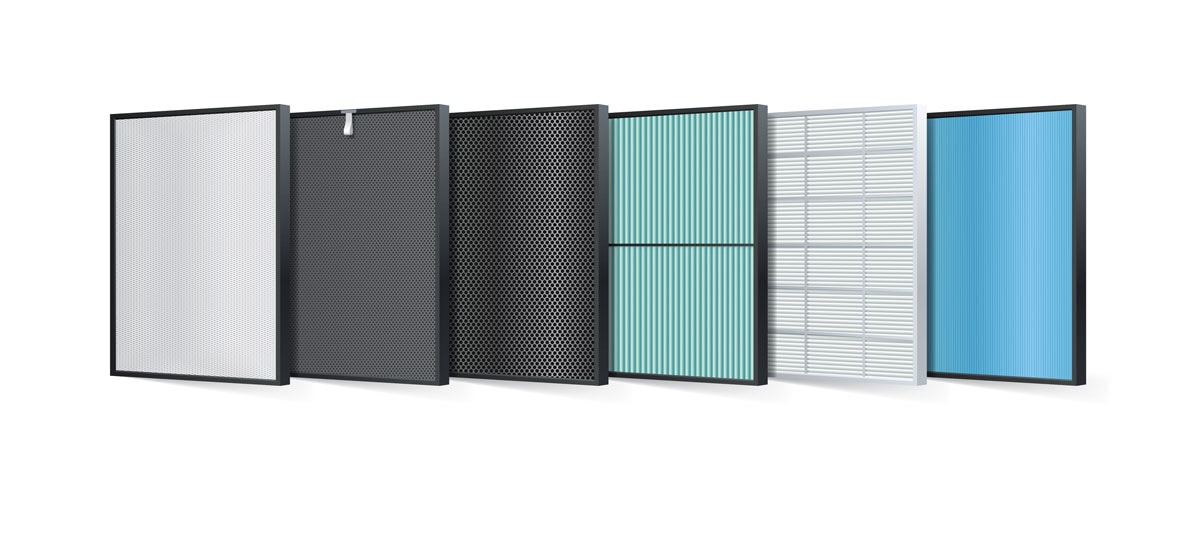
The cost of a HEPA filter varies depending on the size, quality, and model of air purifier. According to sources, the average price for a HEPA filter ranges between $16 and $95. To read more about this subject, check out this post, "How Much Does A HEPA Filter Cost."
Do HEPA Filter Remove Mold?
Many HEPA filters are excellent at removing mold, mildew, and other pesky respiratory irritants from the air. The type and amount of mold that HEPA filters can remove successfully depends on the brand and capacity of the air purifier.
Also, besides running an air purifier with a quality HEPA filter, reduce the humidity and moisture in the air with a dehumidifier to improve air quality.
Are HEPA Filters Effective Against COVID?
Unfortunately, when used alone, HEPA filters are not enough to stop COVID. However, they are still beneficial and improve your indoor air quality. Using an air purifier with a HEPA filter reduces the number of viruses, bacteria, allergens, and unwanted contaminants in the air.
How Often Should HEPA Filters Be Replaced?
Depending on the size and type of air purifier you have, manufacturers have different suggestions on when to replace the HEPA filter. Some suggest replacing the HEPA filter after 6 months to 1 year. Other purifiers may display reduced effectiveness after 150 days have passed.
Occasionally check-up on your HEPA filter and see if it is black, covered in particulates, holding mold, or has an odd smell. If your air purifier is performing poorly or looks heavily soiled, it may be time to change the HEPA filter earlier than suggested.
Otherwise, it is best to follow the manufacturer's suggestions. Or, use your best judgment when the HEPA filter appears contaminated and is less effective.
In Conclusion

The next time you need to purchase a HEPA filter for your air purifier, we hope you feel more confident about your selection. We covered more than a few top brands of air purifiers and details of their filters. Plus, we answered related questions about HEPA filters.
If you enjoyed reading this post, make time to check out the following articles.



